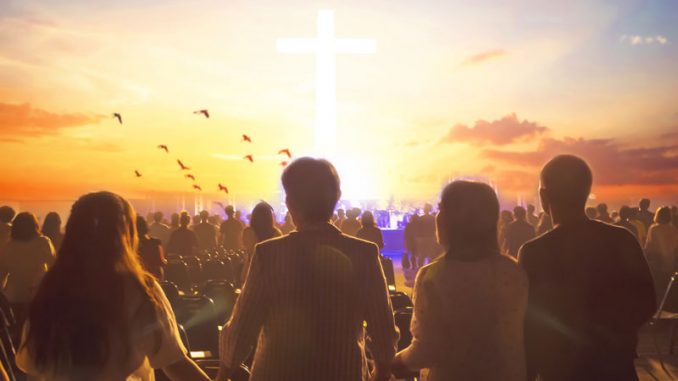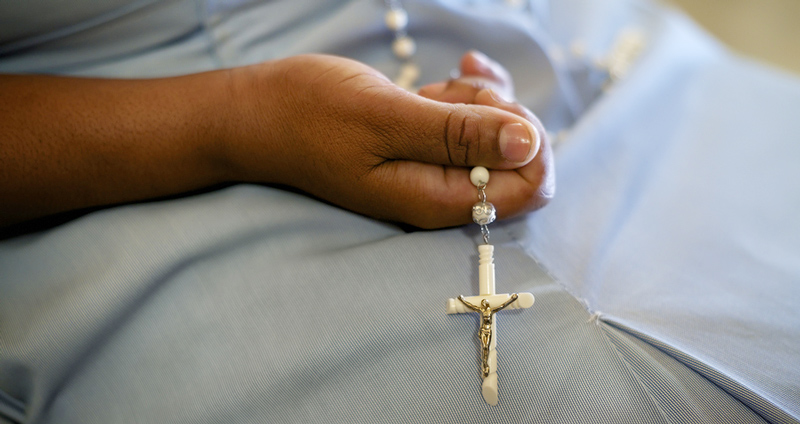
The first Monday of April saw a remarkable gathering of Christian leaders in zucchettos and stoles, clerical collars and kente cloth, business suits and cross pins, copes and saghavarts (Armenian priestly headgear). The site was the Basilica of St. Louis, the Old Cathedral, in the shadow of the famous arch. The occasion was Vespers at the opening of the National Workshop on Christian Unity.
Clergy from 13 Christian denominations had key roles in the worship service, which kicked off three days of prayer and dialogue among more than 180 participants who are invested in ecumenical efforts around the U.S. For more than 50 years Catholics have been involved in outreach to those whom we call our separated brothers and sisters. Gone are the days when we were more likely to dismiss non-Catholic Christians as heretics, dissidents, and schismatics than to embrace them. The workshop capitalized on those things which unite us, while also acknowledging that liturgical-sacramental matters, the implications of Christian morality, and questions of religious authority continue to divide. The days were not so much a truce as they were witness to the ways we can forge bonds of friendship around those things we hold in common.
With other Christians we share belief in the existence of the Triune God, belief in the humanity and divinity of Christ and his world-changing role as our Savior, the call to worship, assurance that the Old and New Testaments are divinely revealed, and an understanding that faith and God’s gift of grace prompt us to act justly, lovingly, and humbly. As many know, our closest Catholic bonds are with Orthodox Christians. Despite our various differences, we find that we can pray with mainline Christians and work on projects to address poverty, racism, immigration reform, criminal justice, and care for God’s creation.
With congregational and non-denominational groups of Christians we often focus on discipleship, evangelization, pro-life efforts, and the interests and integrity of family life and marriage. There is also a significant dialogue between Catholic and Assembly of God theologians on our beliefs about the Holy Spirit and the Spirit’s action in our world.
What the workshop revealed is that what we are doing in our diocese is in step with what is happening around the country.
Here in South Carolina our bishop and representatives from our parishes and offices join the Fellowship of South Carolina Bishops (Catholic, Lutheran, Episcopalian, United Methodist, African Methodist Episcopal, Christian Methodist Episcopal) on initiatives to improve the quality of public education and attend to the cry of the poor. Every January we nod in agreement with other faiths as we decry abortion. We join the South Carolina Christian Action Council on the link between faith and racial justice. We also invest ourselves in activities of the Interfaith Partners of South Carolina, which draws Christians and non-Christians together to promote mutual understanding.
None of these activities intend to water down our Catholic doctrine, tradition, or spiritual strength. What they do intend is to remind us that the Lord meant it when he begged the Father, “That they may all be one … that the world may believe that you sent me” (Jn 17:20).




